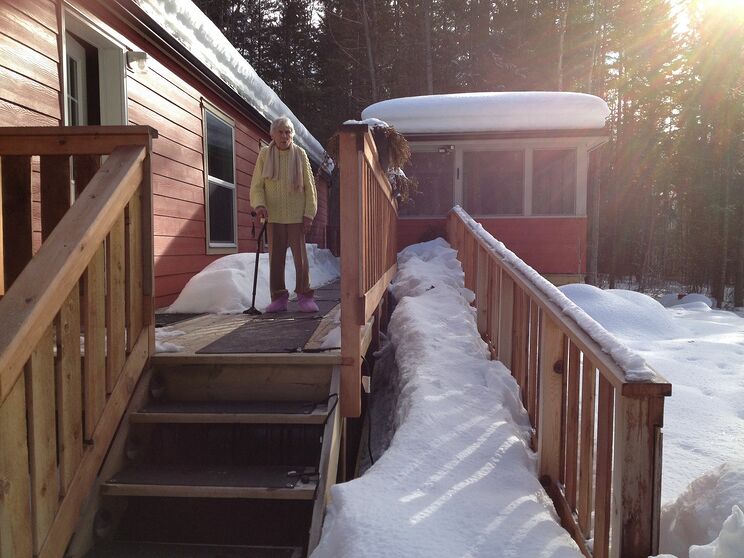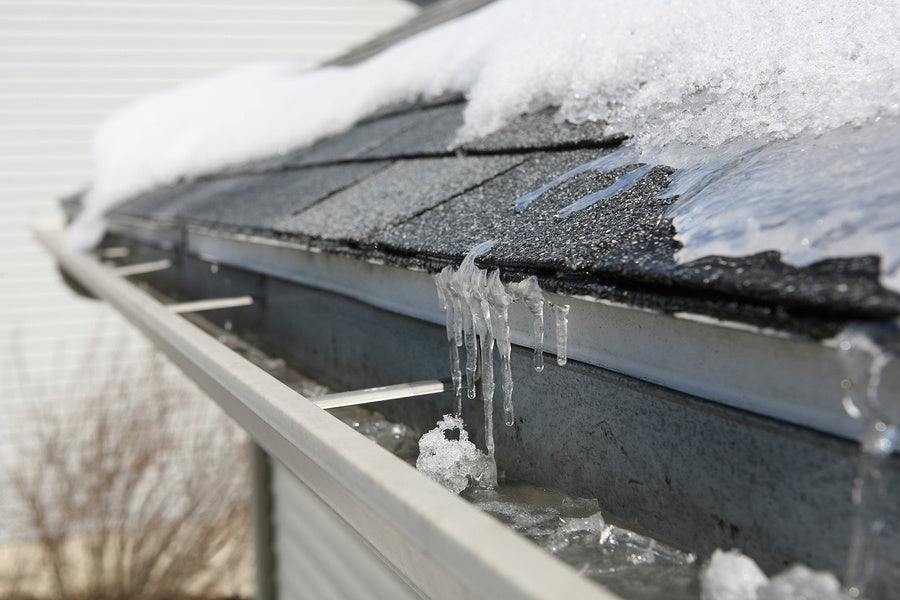As a kid, winter meant snow fights, days off from school, and Christmas presents under the tree. As a senior citizen, well, winter is a whole other ball game! Unfortunately, because of the drop in temperature, icy conditions, and impaired vision or mobility issues, winter ushers in a whole slew of unique health hazards for the older crowd, and many fall victim to these dangers every year.
The good news is that you can prevent cold weather casualties by being aware of the health hazards involved during these times and taking the necessary precautions to keep yourself safe. Take a look at some of the more common winter ailments and what you can do to avoid them.
Hypothermia
Hypothermia occurs when the body drops below 95°F (35°C) and the body begins losing heat faster than it can produce it. This is by far one of the most common issues senior citizens experience during the winter. Because their bodies already have a difficult time regulating temperature (something that naturally occurs with age) and because many seniors don’t take the necessary precautions to keep themselves warmer in the winter, hypothermia can set in. Dress warmer during these months and pile up with cozy sweaters and blankets, indoors and out.
Frostbite
Another disease that occurs from the drop in temperatures, frostbite is a painful experience that we hope you never have to experience. There are several ways to prevent this from developing though:
- Keep appendages dry and covered. Wear mittens, hats, scarves, and plenty of layers.
- Avoid going outside when the temps get really low. If you must go out, limit your time outdoors.
- Wear waterproof clothing when venturing out in the cold rain or snow.
- Change clothing immediately when it gets wet. Particularly socks since the toes are so susceptible to frostbite. Whenever you come in from outside, check your shoes, socks, and clothing to make sure nothing is wet.
- Eat well, especially before you go out.
- Get moving! Exercise and other activity will keep blood circulating through your body and increase body temperatures.
If you notice unusual skin conditions such as overly red or pale skin, numbness, or a tingling sensation, call for help immediately.
Falls
The number one injury reported among seniors during the winter is falls. With ice covering the sidewalks, wet slushy snow underfoot, and a general disorientation due to the cold temperatures, falls are almost inevitable if you aren’t careful. Take these precautions to decrease the chances of sustaining a fall injury this winter.
- Wear shoes with good traction.
- No-skid soles will also help keep your footing.
- Don’t go outside until sidewalks have been cleared.
- Use support while walking over precarious areas. Hold onto railings, ledges, and even someone else if necessary.
- Get a new cane or walker tip to provide more traction against the ice.
- Have someone put down salt, kitty litter, or other traction agents along the walkways outside of your home.
Carbon monoxide poisoning
Because your home is kept sealed tight to prevent cold air from seeping in, carbon monoxide poisoning danger is more likely to occur in the winter. Here are steps you can take to prevent this:
- Don’t use kerosene heaters. These emit dangerous levels of carbon monoxide.
- Keep the home ventilated. Periodically air out your rooms by opening the windows for brief amounts of time during the daylight hours, and don’t run the heat so that it is uncomfortably humid or hard to breathe.
- Check that all components of your heating units (electric, gas, or fire place) are working properly.
- Get new batteries for the carbon monoxide detector.
Additionally, use caution when using a heating element. Don’t plug one into an extension cord, keep it at least three feet away from anything flammable, and never place items on top of the heater.
Car accidents
Car accidents can always happen, but in the winter, they’re even more likely. As we mentioned, slippery surfaces, more clouded vision, and general fatigue that comes from combatting the cold contribute to poor conditions and increased car accidents.
Drive at a slower pace than the speed limit allows, take turns carefully, and avoid areas that are particularly hazardous.
Winter increases the likelihood of health issues cropping up, but it doesn’t have to be a guaranteed trip to the emergency room. Follow this simple guide, and you’ll be doing your part towards keeping winter worry-free.

